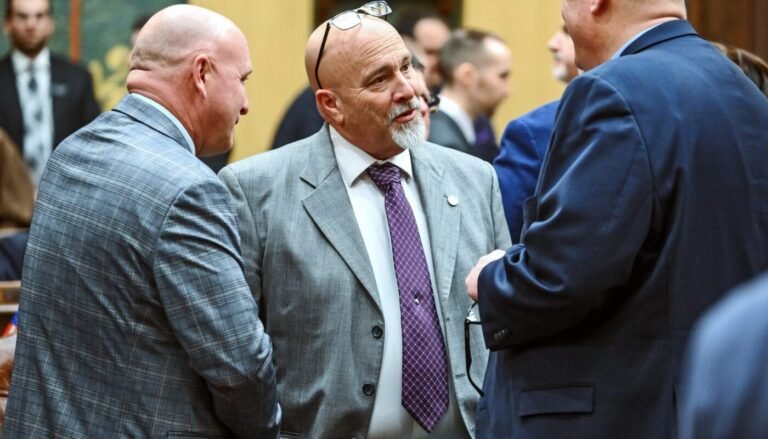Michigan lawmakers face growing pressure as the state nears the extended budget deadline, with some pushing a “no budget, no pay” plan. State Representative Steve Frisbie, a Republican from Calhoun County’s 44th District, proposed that lawmakers should not receive pay if they fail to pass a balanced budget by July 1.
Frisbie’s proposal comes as Michigan begins a new school year without an approved budget, leaving local governments and school districts uncertain about funding.
“Every year, Lansing politicians know the budget deadline is coming,” Frisbie said. “But politicians continue to blow past deadlines and play politics with people’s livelihoods. If lawmakers can’t meet the most basic duty of government — passing a balanced budget by July 1 — then they shouldn’t collect a paycheck.”
The budget delay has now extended into late August, creating uncertainty for essential state services. Schools, road repair projects, and public safety initiatives face potential funding gaps if the budget stalemate continues. Local governments are also struggling to plan ahead without clear guidance on available funds.
The “no budget, no pay” proposal has gained attention among residents frustrated with what they see as legislative inaction. Advocates argue that lawmakers must be held accountable for meeting statutory deadlines that directly affect communities and essential services.
Michigan’s budget process is guided by law, requiring lawmakers to approve a balanced budget by July 1 each year. Failure to meet this deadline can disrupt state programs, delaying payments to schools, contractors, and local authorities. Frisbie’s proposal aims to create stronger incentives for timely budget approval.
Budget negotiations in Lansing have become increasingly tense in recent years, with partisan disagreements slowing down the approval process. The current impasse highlights ongoing challenges in reaching consensus on state spending priorities.
Local officials have warned that prolonged delays may force temporary measures, such as borrowing or cutting services, to maintain basic operations. School districts, in particular, face uncertainty over staffing, programming, and maintenance projects without confirmed funding.
Some legislators have expressed concern over the “no pay” approach, arguing it could create additional tensions during already difficult negotiations. Others see it as a necessary step to ensure lawmakers take their budget responsibilities seriously.
Experts note that accountability measures like Frisbie’s proposal may prompt faster action in the future, but the immediate focus remains on passing the current fiscal plan. Residents and public employees alike are watching closely as the state navigates the budget deadline.
As Michigan continues into the new school year, the pressure on lawmakers grows. The “no budget, no pay” plan reflects a broader push for accountability and timely governance. Communities across the state hope for a resolution that secures funding for schools, roads, and public safety programs without further delays.







